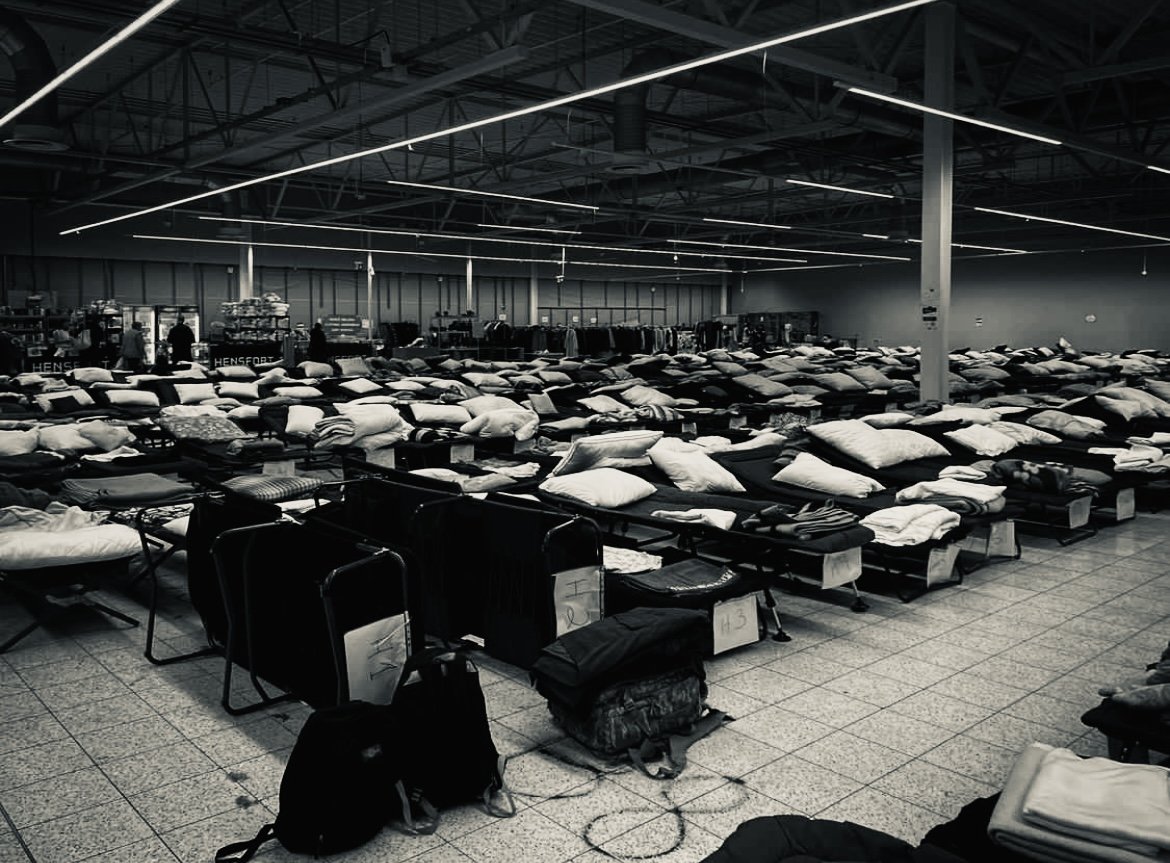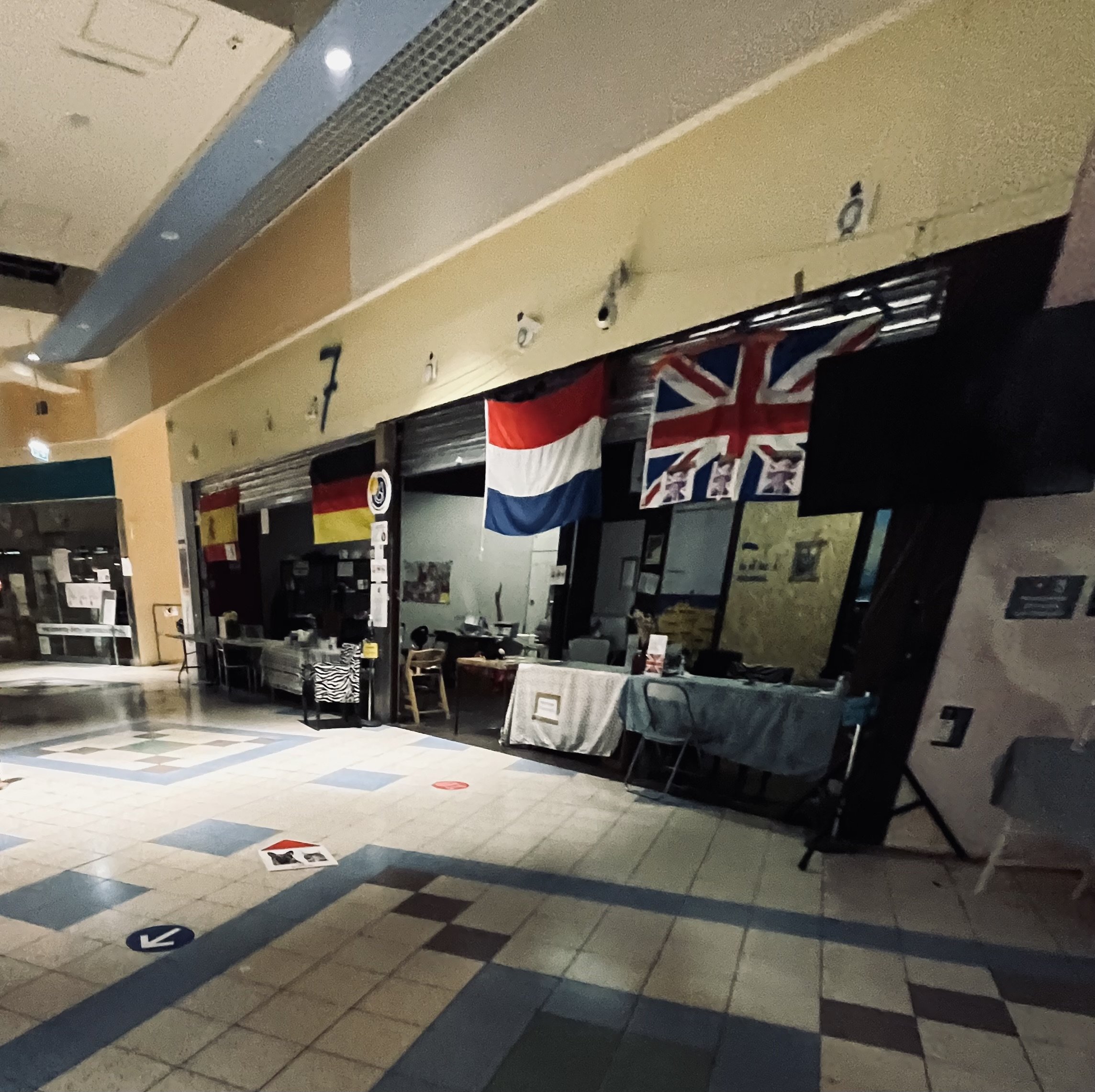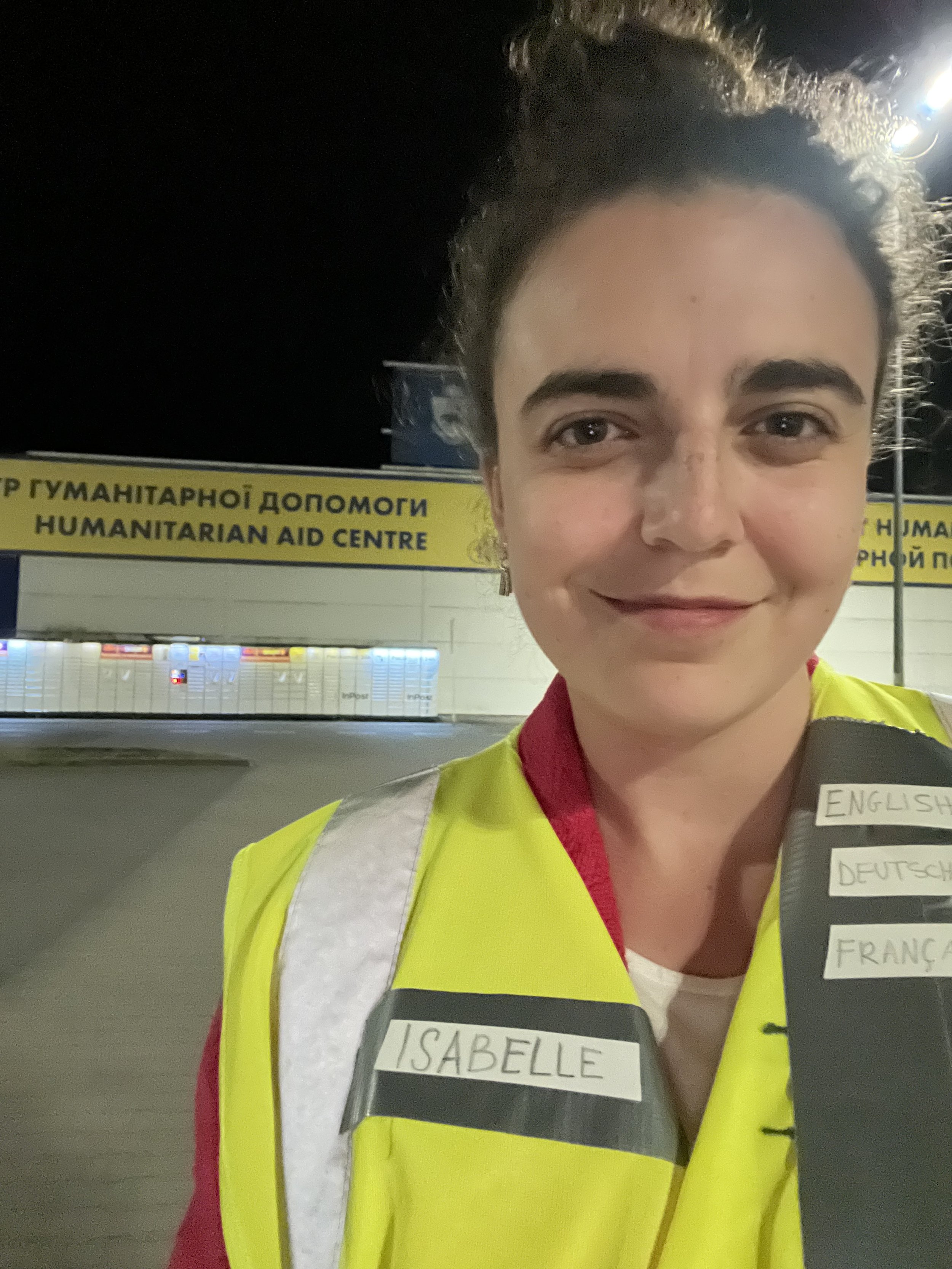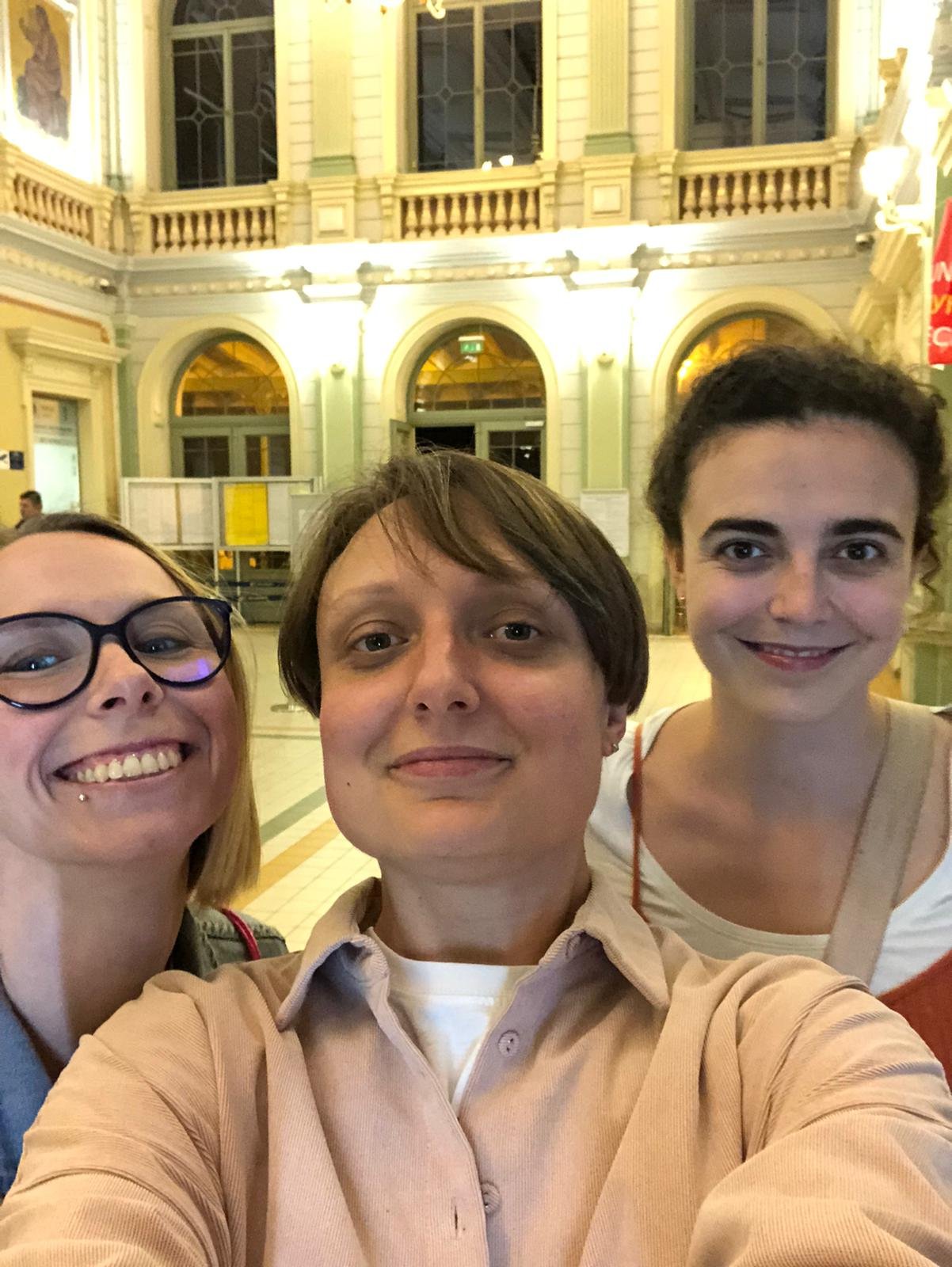Episode 2, This is Tesco
When I arrived at the former supermarket-turned refugee transit center, it took less than ten minutes and a quick check in with police officers for me to become a part of this little outside world inside our big world. Wearing the yellow vest with the languages you speak written on it, means you are here to serve. Almost immediately after entering the large, loud and people-filled complex, two women came up to me asking for diapers. This is how I became an automatic part of the mother and baby room and was begged to cover the nights. The room held about 200 beds and almost each one of them was continuously taken. The main purpose of this center was to offer rest after a long journey. Typically, this is the first stop in a long journey to refuge for Ukrainians. They arrive in buses, in cars or by foot with luggage and family, walk up to a specific registration table flying the flag of their desired end-destination, register, get tickets and travel information for this destination, are put up in a room matching the flag of their destination and rest here for a few days. While countries such as Italy, Spain, The Netherlands, Switzerland, Austria and Scandinavian countries are an option at the registration point, most of the refugees gravitate towards the UK, German and Canadian registration tables. As a German, this is no surprise to me and I feel almost a little bit trained in how to conquer and live with refugee waves in my country. “We can do it”, our former chancellor Angela Merkel once said in 2015 and I wholeheartedly agree. Wir schaffen das. “I’m here to register from Russians for Ukraine” was one of the first things I heard in the transit center. Of all the things I was mentally preparing myself to hear and see, this was a sentence I absolutely did not expect. There are Russians here at the border, providing humanitarian aid to Ukranians? It did not take long until I met two of them. Ilga and Ksenia became the two new friends I imagined and hoped to meet all along while on the bus to Poland when thinking about the coming weeks and who I might possibly meet. To me, they became such crucial and essential pillars during my time in Przemysl. Ksenia had the experience of being there a total of 1,5 months, and Ilga, who I worked closest with, spoke Russian and English fluently. They are two Russian women who both had left Russia many years ago and live abroad now. They’ve had enough of their country and brought much experience to the table. Especially Ilga and I had hour-long conversations in which she often would refer to Ukraine as “the other side”. This somewhat actually inspired the name of my podcast. Many in Poland, be it volunteers or residents speak of “Poland'' and “the other side”. An especially often heard sentence: “Do not dare to cross to the other side. It is not as safe as they say”.
Interview with Ksenia and Ilga
Thank you for listening to Inside the Other Side. I am always happy to connect with you listeners via email or on social media @insidetheotherside.
Until next week!
Slava Ukraini!




